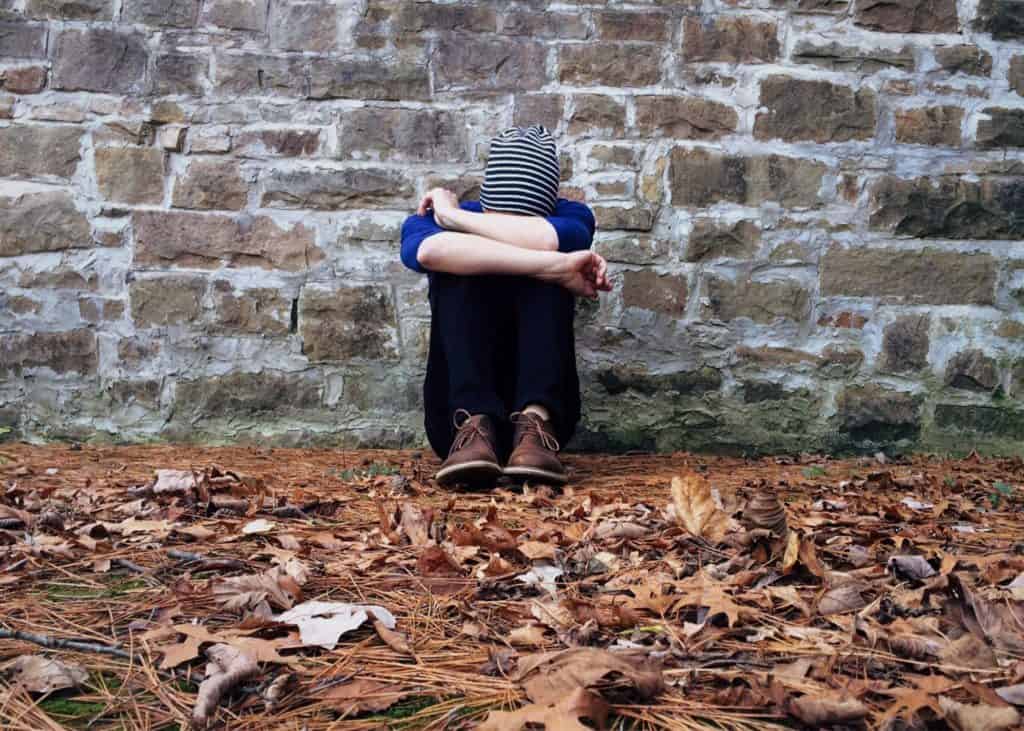Anxiety, a common mental health illness, is characterised by chronic worry or concern. Anxiety can take a number of forms, such as Generalised Anxiety Disorder (GAD), panic disorder, phobias, Post-Traumatic Stress Disorder (PTSD) or Obsessive Compulsive Disorder (OCD).
In the majority of cases, anxiety develops due to a variety of different factors combined (rather than having any single one cause), and may include:
– family or personality factors
– medical factors (such as physical or mental illness), and/or
– environmental factors (such as ongoing stress, trauma or lifestyle).
Regardless of the cause(s) of anxiety in a given individual, it is important to remember that many people suffer from this mental health condition and it is nothing to be ashamed of. Recognising you or someone you know is suffering from anxiety is a great first step on the road to recovery. Secondly, being able to identify the specific cause(s) of your anxiety can be very helpful, including when it comes to selecting the most beneficial form of professional treatment and support. (In a small number of instances, anxiety has no identifiable cause).
Let’s take a look at some of the most common causes of anxiety.
Common Causes Of Anxiety
Family History Or Upbringing
Some anxiety sufferers may have a family history of anxiety or other mental illness, as suffered by their parents or other close family members. However, currently, more research is required in order to determine whether genetic factors specifically increase the risk of developing anxiety, or whether a particular a type of upbringing (i.e. learning certain ‘anxious’ ways to think and behave) contributes more so to the development of anxiety (or both).
It is important to note that a family history of anxiety or other mental health illness does not mean you will personally suffer from anxiety, but it may however play a part in the development of anxiety.
Personality Types Or Traits
Anxiety tends to develop in some personality types over others; for example, in particularly shy or sensitive personalities, or perfectionist personalities. People who are timid or have low self-esteem may develop anxiety. Similarly, those people who are easily flustered or have the desire to maintain control over everything may be conducive to suffering from anxiety.
Serious And/Or Chronic Physical Illness
Living with a serious and/or chronic physical illness is often a trigger for anxiety and related disorders. Heart disease, diabetes, thyroid problems, chronic fatigue syndrome, asthma, allergies and cancer are all examples of serious and/or chronic physical health conditions which can be very difficult to manage and cope with over time, and as a result may contribute to the development of anxiety.
Other Mental Health Illness
It is not uncommon for people battling anxiety to be concurrently suffering from another mental health illness. In many cases, a person suffering from anxiety may also be suffering from depression. Other examples of mental health illness that may be experienced alongside anxiety include insomnia and eating disorders. In this case, it is particularly important to seek the right sort of professional help and support.
Anxiety can also be a side effect of certain medications for physical and psychiatric illness. A lack of oxygen (for example, due to illness such as emphysema or asthma, or high altitude sickness) may also trigger anxiety.
Persistent Or Ongoing Stress
An individual may develop anxiety due to persistent or ongoing stress. Often, anxiety is triggered by a combination of stressors, and may include stress related to:
– family, relationship or social problems/conflict
– pregnancy and childbirth
– serious illness and/or the death of a loved one
– significant change to living arrangements (such as moving interstate or overseas, divorce, or introducing a newborn baby into the family)
– study pressures (for example, at school or university)
– work pressures or job change (such as a promotion or redundancy)
– financial responsibilities
(Additionally, in some cases anxiety itself can further escalate feelings of anxiety).
Trauma
A variety of different traumatic experiences can contribute to the development of anxiety, and may include experiences from childhood, our teenage years or adulthood. Distressing events or traumas which may trigger anxiety include:
– abuse (emotional and/or physical) and/or neglect
– losing a parent or close family member
– witnessing or experiencing violence
– witnessing or experiencing serious accident or death
– severe weather events (such as a cyclone, flood or bushfire)
Current Lifestyle Or Situation
Sometime, our current lifestyle or situation (with regards to our work life and/or personal life) can trigger anxiety.
Examples regarding our career or work life may include:
– working long hours or doing significant overtime
– struggling to find or hold down work
– working part- and or full-time and studying concurrently
In terms of our personal lives, situations which may trigger anxiety include:
– financial problems
– housing difficulties or homelessness
– loneliness or isolation
– alcohol or drug abuse, or substance withdrawal
– sleep deprivation
– lack of or inability to exercise
– poor diet
In some cases, consumption of particular foods (or drinks) may amplify feelings of anxiety. For example, caffeine consumption or consuming excessive amounts of sugar may trigger or worsen feelings of anxiety.
Understanding the contributing causes of a person’s anxiety is an important part of the journey to recovery. By recognising the causes of anxiety, treatment and support can be tailored accordingly. If you or someone you love are suffering from anxiety, don’t delay the recovery process by getting in touch with our friendly and experienced team here at Blissiree Pty Ltd.




